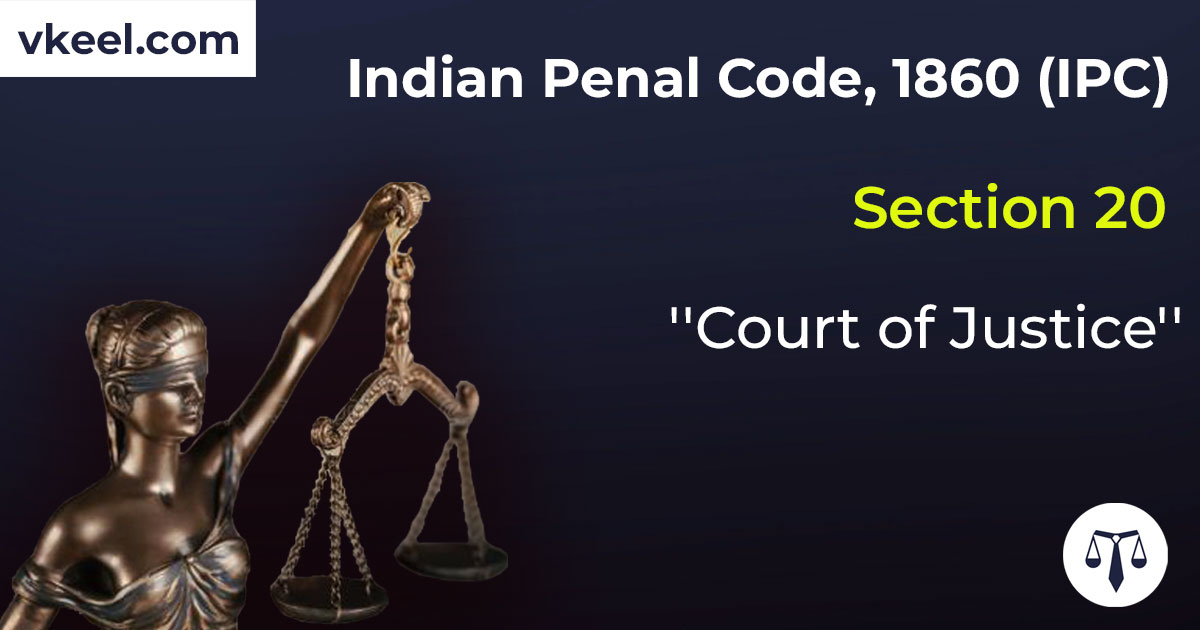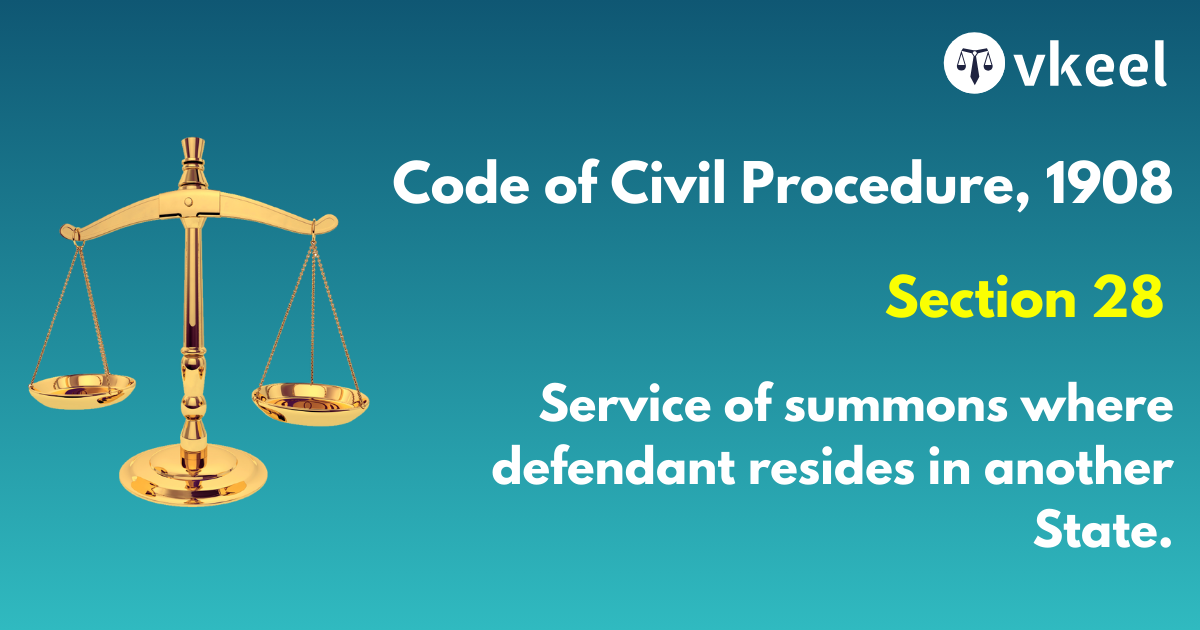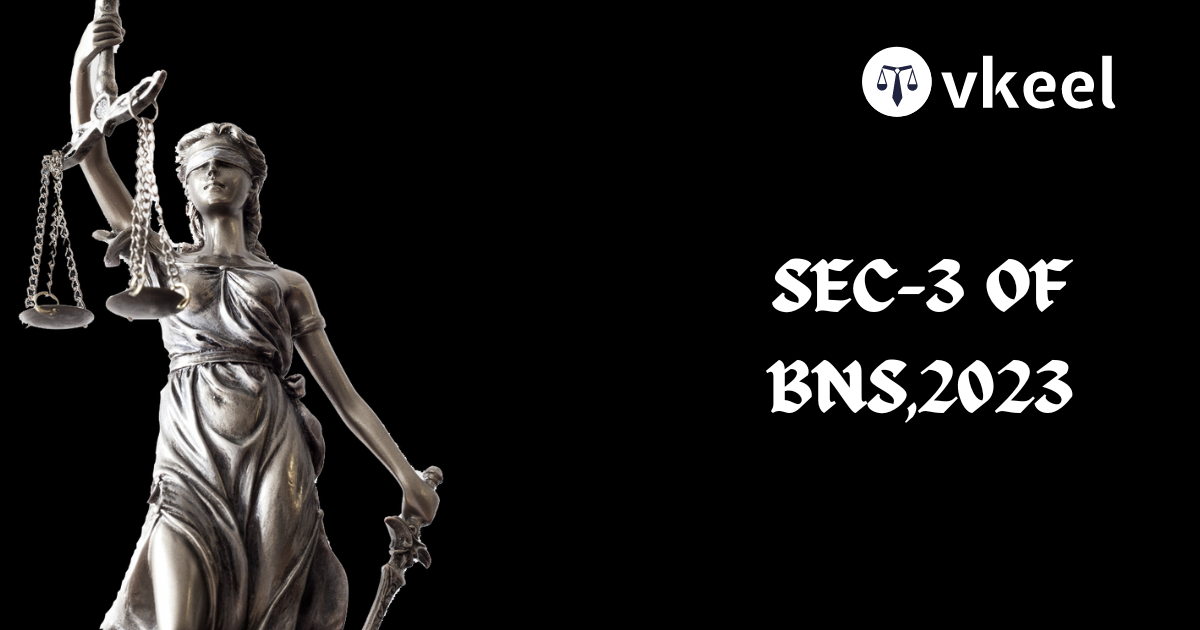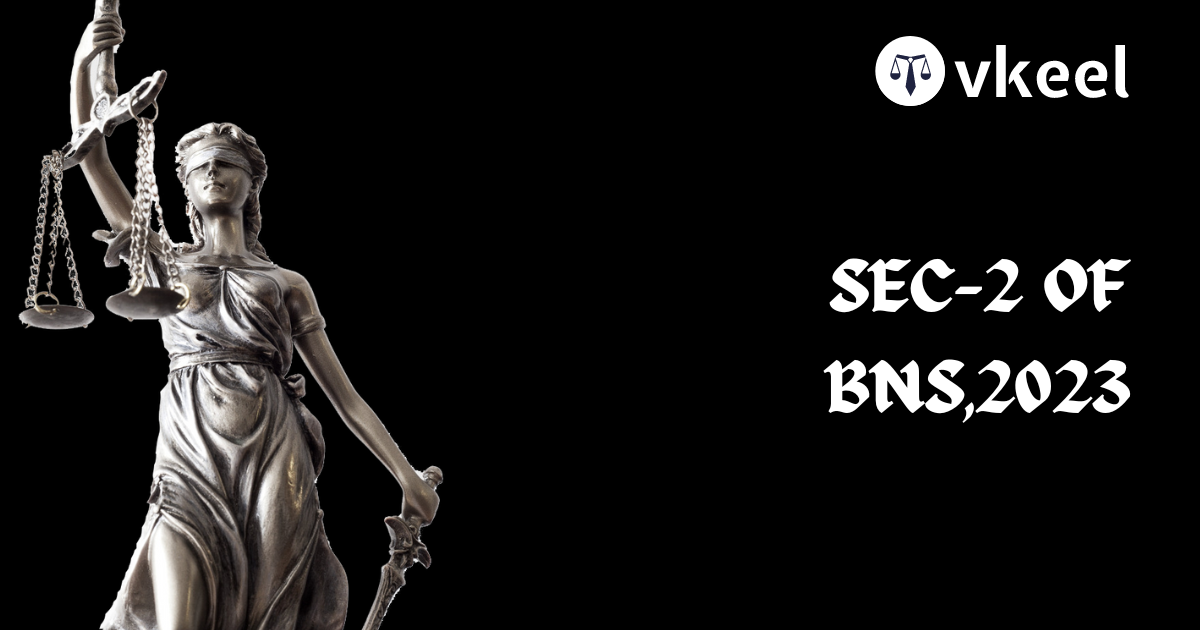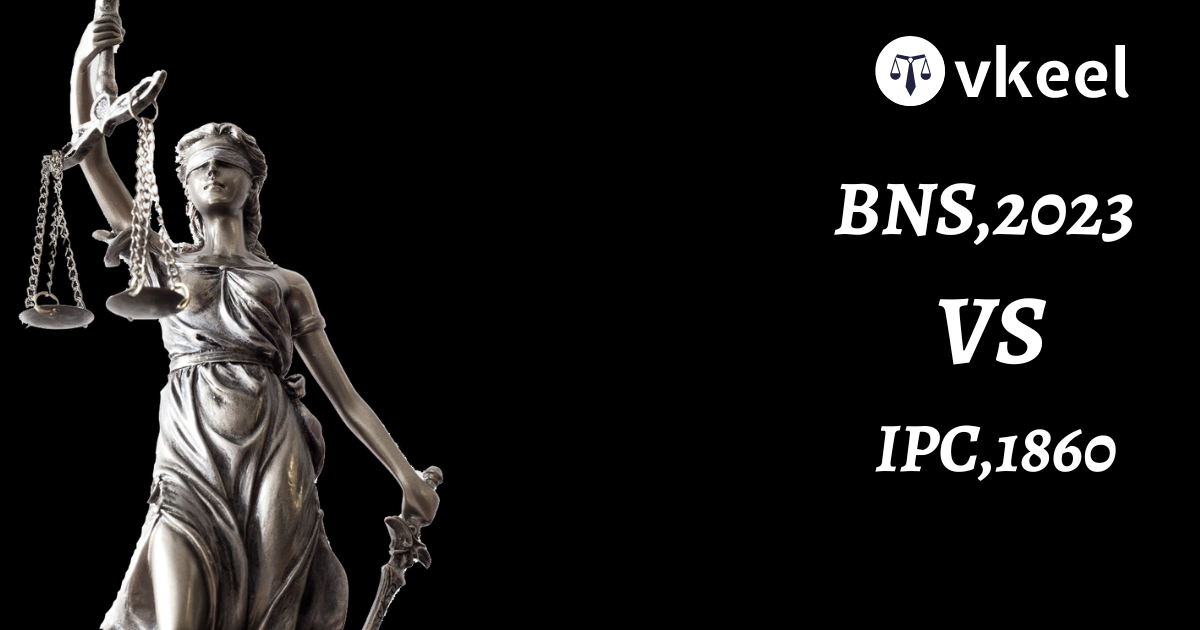Section 20 Indian Penal Code 1860 (IPC) – “Court of Justice”
By Vkeel Team
Table of Contents
Description
“Section 20 Indian Penal Code 1860 (IPC)”
The words “Court of Jutsice” denote a Judge who is empowered by law to act judicially alone, or a body of Judges which is empowered by law to act judicially as a body, when such Judge or body of Judges is acting judicially.
Illustration
A Panchayat acting under 1Regulation VII, 1816, of the Madras Code, having power to try and determine suits, is a Court of Justice.
Introduction
Section 20 of the Indian Penal Code, 1860 (IPC) defines the term “Court of Justice” and the scope of its jurisdiction. This section is crucial in determining the powers and authority of courts in India, and it plays a vital role in the administration of justice.
Definition of “Court of Justice”
According to Section 20 of the IPC, a “Court of Justice” is any court which is legally authorized to exercise judicial functions. The term “Court of Justice” includes not only courts established by law but also any person who is legally authorized to give a decision in a legal dispute.
Jurisdiction of “Court of Justice”
The jurisdiction of a “Court of Justice” extends to all cases where a person is accused of an offense. This includes criminal cases where an individual is charged with an offense against the state, as well as civil cases where a person’s rights or property are being disputed.
The jurisdiction of a “Court of Justice” also extends to cases where a person is accused of committing an offense outside the territorial limits of India, provided that the offense is punishable under Indian law.
Powers of a “Court of Justice”
A “Court of Justice” has the power to investigate and try any offense that falls within its jurisdiction. The court can also pass judgments and issue orders for punishment or compensation, as the case may be.
Additionally, a “Court of Justice” has the power to issue warrants, summonses, and other legal orders to enforce its judgments. The court can also order the arrest and detention of individuals who are accused of committing an offense.
Limitations on the Powers of a “Court of Justice”
While a “Court of Justice” has extensive powers to administer justice, these powers are not unlimited. The court must act within the confines of the law and cannot exceed its jurisdiction.
Additionally, a “Court of Justice” must adhere to the principles of natural justice and ensure that the accused is given a fair trial. This includes providing the accused with legal representation, ensuring that the trial is conducted in an impartial manner, and giving the accused an opportunity to present their case.
Conclusion
In conclusion, Section 20 of the Indian Penal Code, 1860 (IPC) defines the term “Court of Justice” and outlines the scope of its jurisdiction and powers. The section is crucial in ensuring that justice is administered in a fair and impartial manner, and it plays a vital role in maintaining law and order in the country.
1. Rep. by the Madras Civil Courts Act, 1873 (3 of 1873).
Desctiption Source: indiacode
Disclaimer:
The information provided in the article is for general informational purposes only, and is not intended to constitute legal advice or to be relied upon as a substitute for legal advice. Furthermore, any information contained in the article is not guaranteed to be current, complete or accurate. If you require legal advice or representation, you should contact an attorney or law firm directly. We are not responsible for any damages resulting from any reliance on the content of this website.

